From 29 September to 3 October 2025, Professor Wang Zhaokui led a delegation comprising students Cai Yingkai, Wen Qian, Fang Zhengqing, and Yu Jing, to attend the International Astronautical Congress (IAC) in Sydney, Australia.
Throughout the week-long conference, the team delivered multiple research presentations showcasing recent advances in aerospace systems and intelligent space technologies.
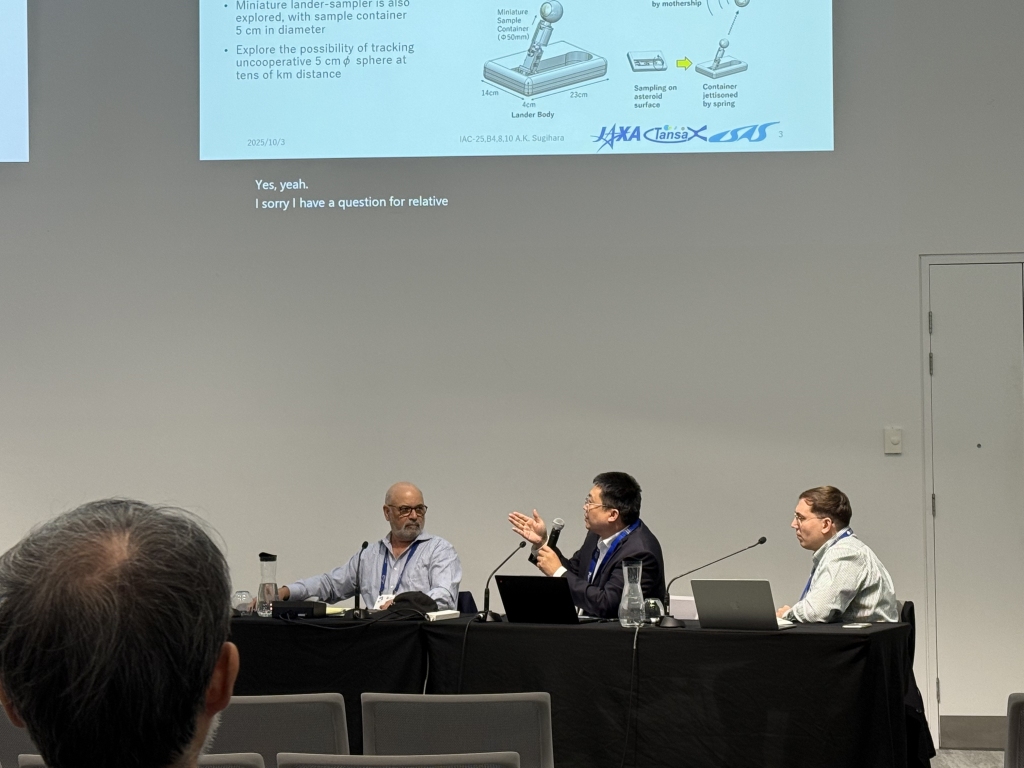
Professor Wang, an Academician of the International Academy of Astronautics (IAA) and representative of Tsinghua University, took part in the Space and Astronomy Technical Committee of the International Astronautical Federation (IAF). He also chaired a session on small satellite missions at the IAA conference, contributing to discussions on the future of space exploration and collaboration.
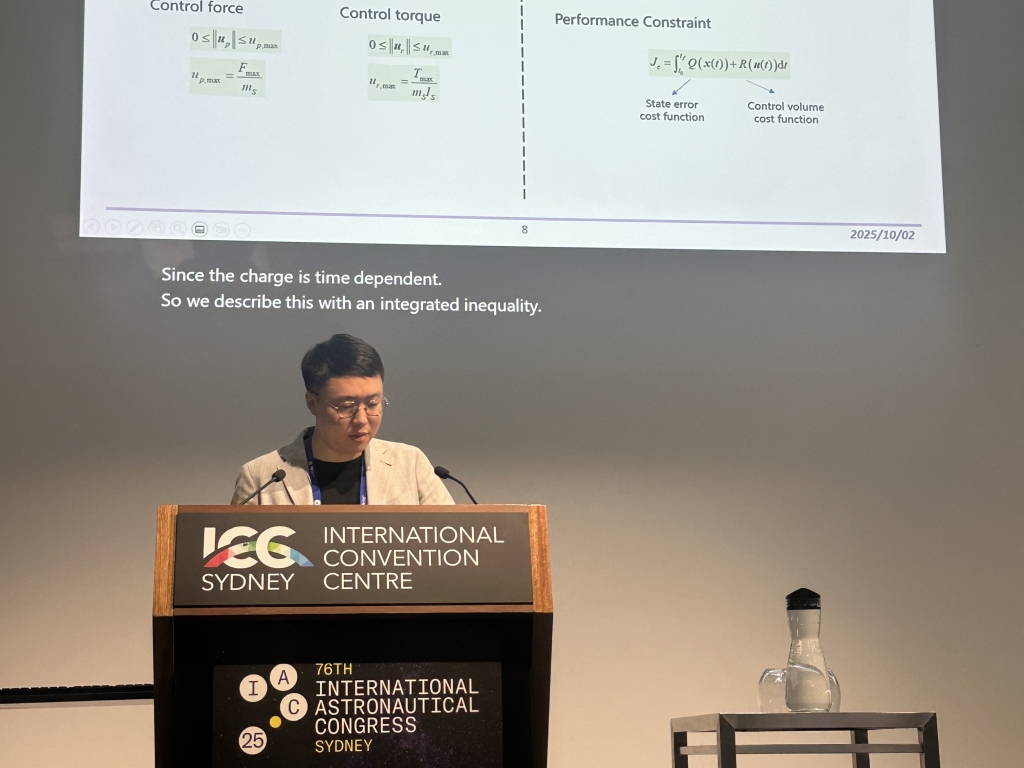
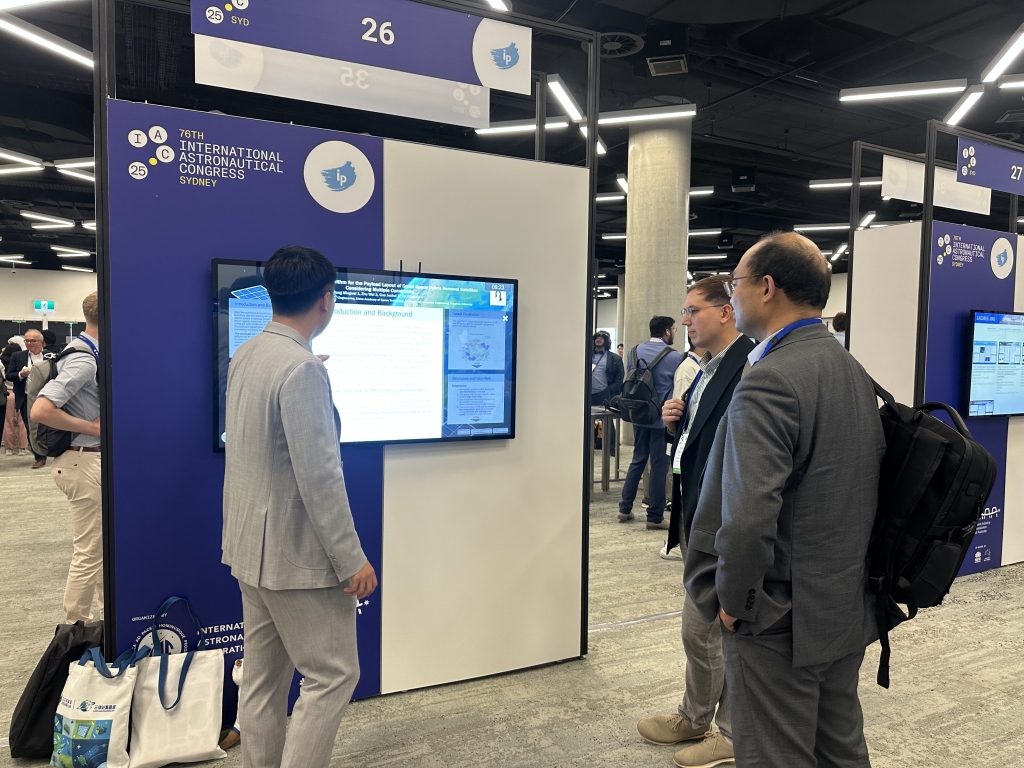
Postdoctoral researcher Cai Yingkai presented an oral paper on "Multi-Agent Deep Reinforcement Learning for Cooperative Control of Small Satellite Formations Under Complex Constraints" and joined an interactive poster session on "Intelligent Optimisation Algorithm for the Payload Layout of Small Space Debris Removal Satellites Considering Multiple Constraints."
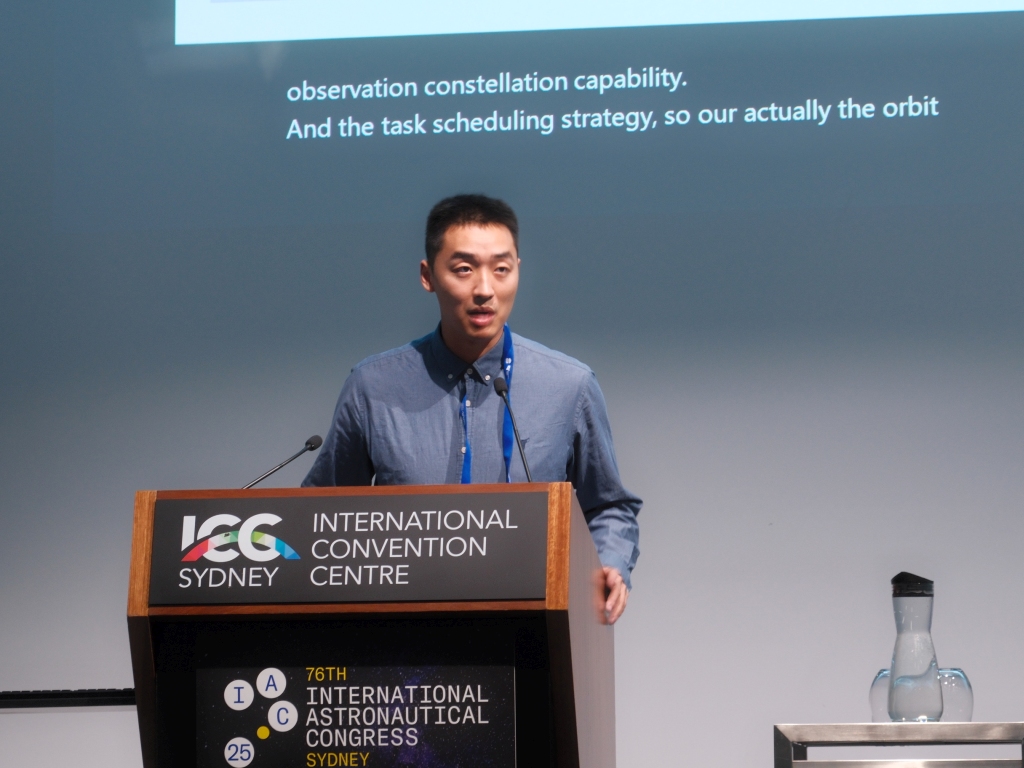
PhD student Fang Zhengqing delivered a 10-minute oral presentation titled "Constellation Reconfiguration and Task Scheduling Optimisation for Emergency Earth Observation Response Using Low-Thrust."
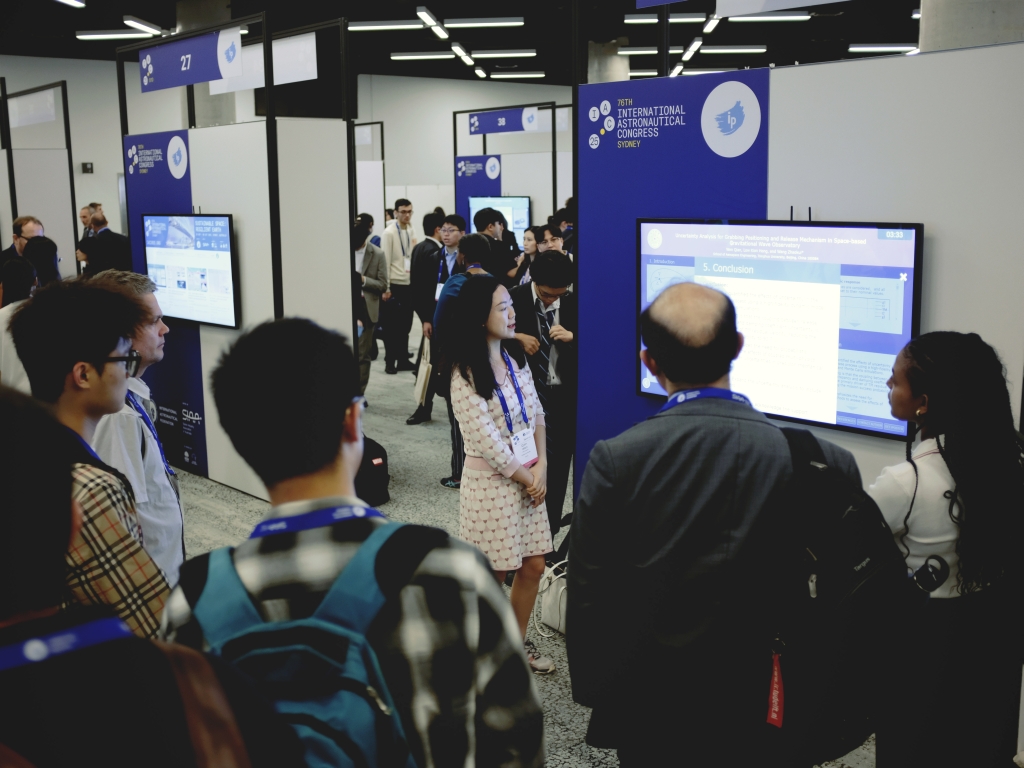
PhD student Wen Qian presented at the B4 Interactive Poster Session on "Uncertainty Analysis for Grabbing Positioning and Release Mechanism in a Space-Based Gravitational Wave Observatory", engaging in lively academic exchanges with international participants.
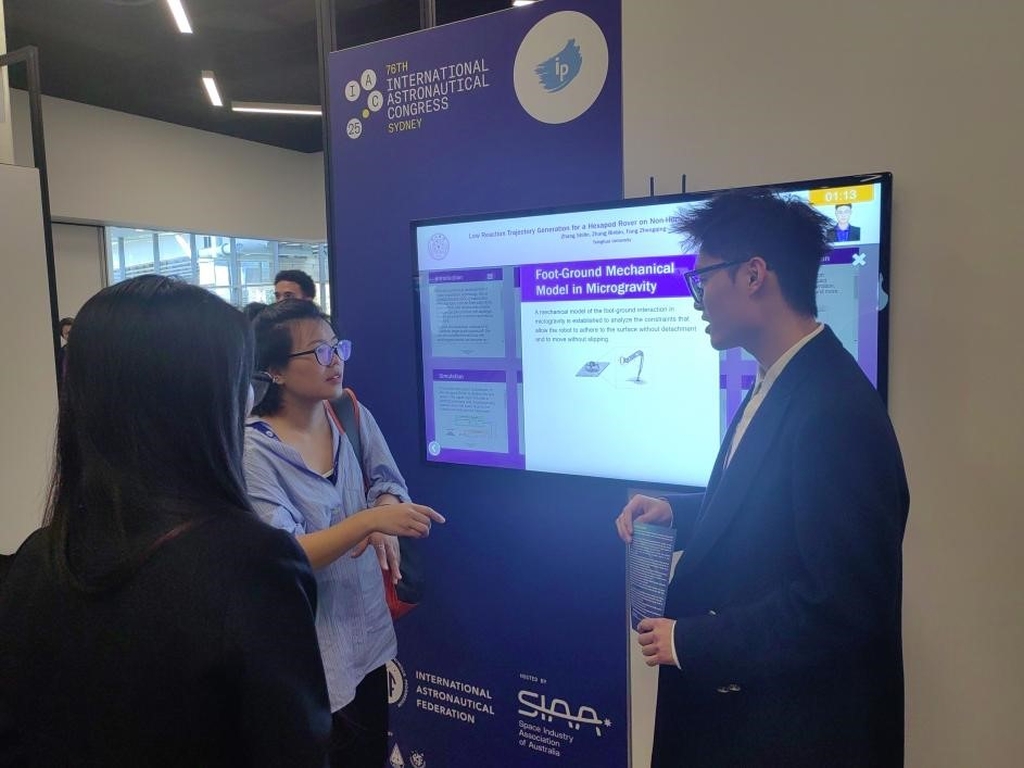
PhD student Zhang Shilin presented his work titled “Low Reaction Trajectory Generation for a Hexapod Rover on Non-Horizontal Terrain in Microgravity” during an interactive session at A3: The IAF Space Exploration Symposium, showcasing recent advances in hexapod robotics research.
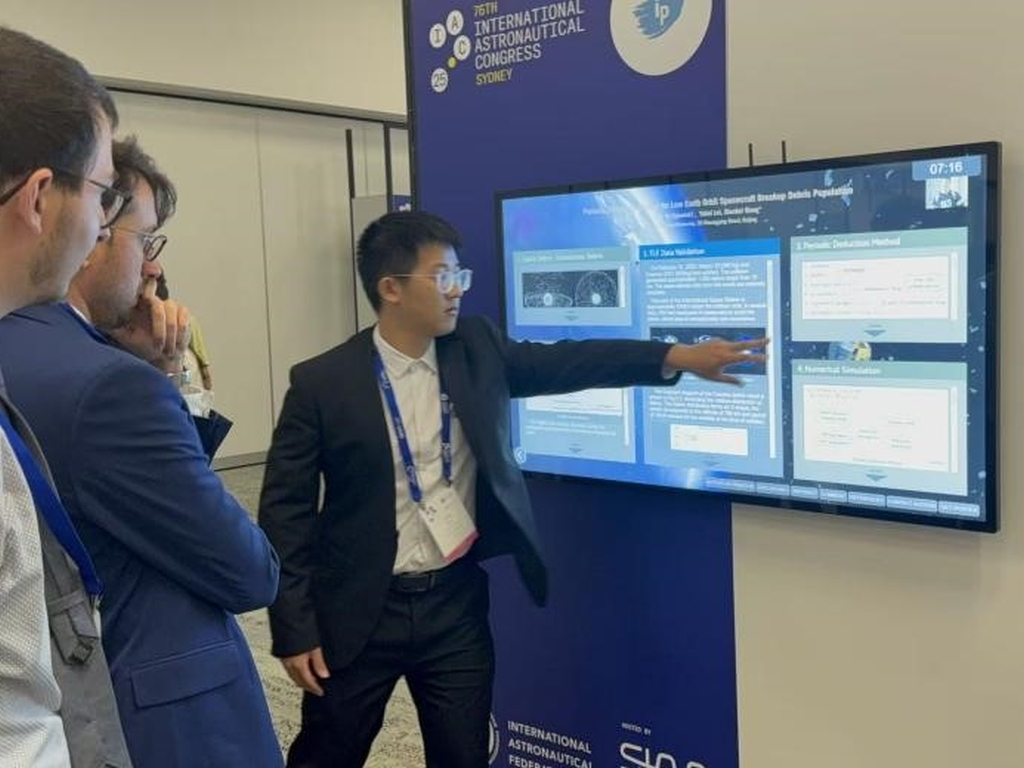
Undergraduate student Yu Jingyi presented his latest research on “Periodic Deduction Method for Low Earth Orbit Spacecraft Breakup Debris Population” during an interactive session at A6: The 23rd IAA Symposium on Space Debris, sharing new insights into the evolution of orbital debris.
The group’s presentations drew strong interest from attending experts and peers, receiving encouraging feedback. The Congress provided an invaluable platform for scientific dialogue and reinforced the group’s contribution to advancing research in aerospace engineering and intelligent space systems.